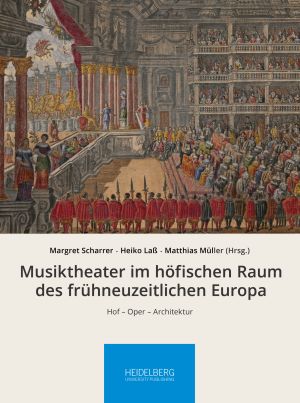Fenböck, Karin
Musiktheater im höfischen Raum des frühneuzeitlichen Europa: Hof – Oper – Architektur
The unification of the arts in the "Gesamtkunstwerk" of courtly opera has repeatedly been the subject of musicological research, but so far, for example, the specific spatial-architectural side of courtly opera has hardly been considered. Music theater means scenic performance and architecture alike. Both formed essential components of lordly representation in the 17th and 18th centuries. In the Old Kingdom, therefore, not only the aristocratic nobility arranged music-theatrical performances, but smaller courts also brought ballets and operas on stage. The interdisciplinary contributions of a conference of the Rudolstädter Arbeitskreis zur Residenzkultur deal with the topic in a European perspective and explain the diverse connections that existed between the music theater and the courtly space in the architectural, political-cultural and social sense.




